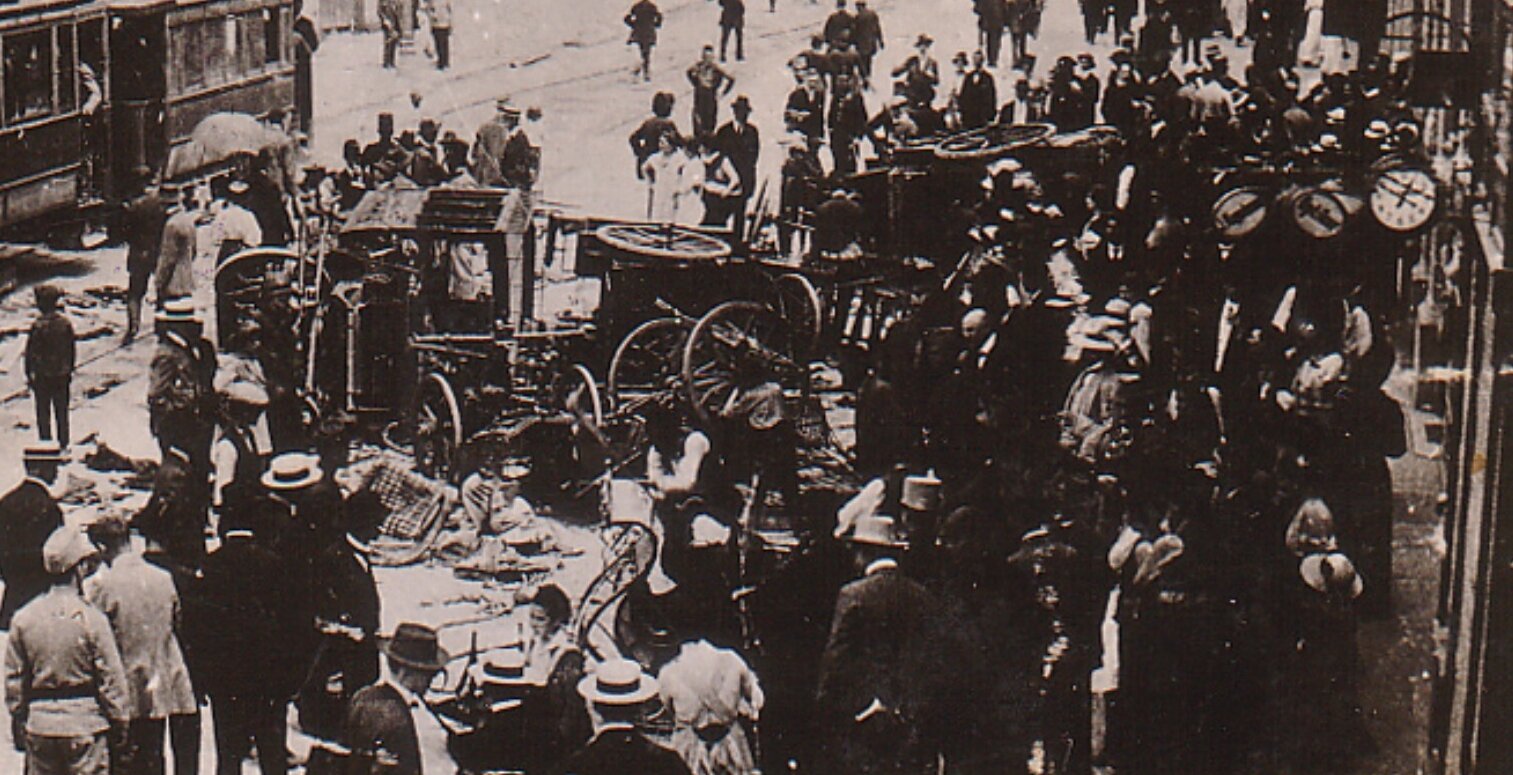The Chaos of History (part 1)

Credit: CC BY-SA 4.0 via Wikimedia
One Who Causes History
Think of the history of the twentieth century and who is most responsible for it. You might be thinking of world leaders like Franklin Delano Roosevelt, Joseph Stalin, or Mao Zedong. Or perhaps you are thinking of those who invented the technology that changed the world, such as Albert Einstein or Tim Berners-Lee.
But I suggest a man you probably haven’t heard of named Gravilo Princip.
The day started off poorly for Archduke Franz Ferdinand when three security officials were left behind, by mistake. Then an assassin threw a bomb at his car, and the rest is history!
Actually, it isn’t. The bomb bounced off his car and the exploded without injuring the Archduke. The motorcade sped away to protect him from any other assassination attempts. This moment is what Ceasar must have felt when he exclaimed “The Ides of March have come, and I am still alive!”.
Princip realized he lost his chance, so he gave up and went to a nearby food shop. But when the motorcade started up again, someone forgot to tell the driver to change the route. By the time the Archduke’s staff realized, the transmission jammed in their automobile (still a recent invention), so the it stopped right in front of an awe-stricken Pincip.
By a ridiculous stroke of misfortune (or luck, depending on your point of view), between the security officials being left behind, the first failed assassination attempt, the driver not knowing the route, the transmission jamming, Gravilo Princip had his opportunity. On June 28, Princip shot and killed Archduke Ferdinand, setting in motion a chain of events which would result in the First World War.
Princip’s Butterfly Effect
As you might know, the treaty which ended World War One involved massive war reparations to be paid by the Germans. The German people came to resent of these foreign powers spread, which fanned the flames of nationalism represented by the Nazi Party. Thus begins World War Two.
As you might know, the victors of World War Two partitioned off Europe, and while they were doing so, certain tensions among the victors emerged. This led to the stand off of the Cold War.
So Princip brought about a series of events which caused the Cold War. Or perhaps the Archduke’s driver should be the one whom we say brought about these events. Or perhaps the man who owned the food shop that Princip stopped at, for if he were not there perhaps Princip would gone to a different place that wasn’t on the motorcade’s route.
Some would counterargue that the Austro-Hungarian empire was already ripe for conflict, and if not Princip, then someone else would set it off. But if it was set off in the middle east as a result of Ottoman aggression (there was unrest in the region ever since the Young Turk Revolution). Maybe the alignment would have been different. Russia would not feel compelled to defend the Slavic peoples, and maybe Russia uses this hypothetical war to seek a warm-water port, and with the manpower of Russia weighing on the other side of the scale, the outcome could be drastically different. The specific details of these events can matter a lot
False Assumptions
We like to think that systems like human society have some predictable order. We like to think that this order is affected by world leaders and important people. We like to think that things happen for compelling reasons. But when a world war breaks out on account of the chauffeurs wrong turn, I realize that human society is so vastly complex and intricate that some events are just so ‘out there’ to be foreseen.
Historical trends and forces are powerful and determine the ‘steady’ events, like the US economy growing a few percentage points per year. However The most interesting events that really make a change, like the housing crisis or 9/11, are completely random and unforeseen, even by scholars. That course of history wasn’t determined by simple rules ore logical reasons. It’s just Lady Fortuna spinning her wheel.
Further Reading
- Part 2
- Scientific American: Gavrilo Princip, conspiracy theories and the fragility of cause and effect
- Chapter 1 of ‘The Black Swan’ by Nassim Taleb